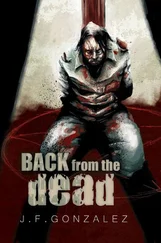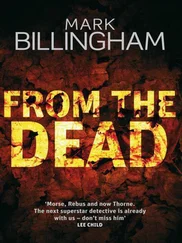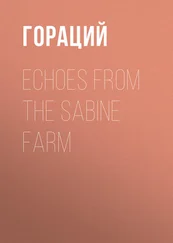“And my Jens?” said Julia in a low voice.
“It was an accident, Julia. I didn’t see him...” said Lennart, his voice thick; he still wouldn’t look at her. “When Kant was dead, we found... we found the little body underneath the car. He didn’t... have time to get away when I ran over Kant...”
He fell silent.
“Where did you bury him?” asked Gerlof.
“He’s down in the churchyard, in Kant’s grave.” Lennart was speaking like someone forced to recall a terrible dream. “We took the boy’s body and Kant’s up there in the darkness. We put a bell on the church gate so we’d hear if anybody came along, and lifted the turf. We put the earth on a tarpaulin. Then we dug half the night. Martin Malm, Ljunger, and me. All three of us... we dug and dug. It was dreadful.”
Julia squeezed her eyes shut.
By a stone wall, she thought. My Jens is buried by the stone wall surrounding Marnäs churchyard, murdered by a man filled with hatred — just as Lambert had said.
She took a deep breath.
“But before you buried Jens,” she said, her eyes closed and her voice faint, “you came down to Stenvik that evening and helped look for him. You led the search for the boy you’d killed... my son... And then you drove around pretending to search on the alvar, so you could get rid of any traces you’d left behind.”
“But it hasn’t been easy,” he said quietly, still not looking at her. “I just want to say that, Julia, it hasn’t been easy keeping quiet. This autumn, when you came back... I really wanted to help you. I tried... I wanted to forget everything that happened twenty years ago. I wanted you to forget too.” He stopped, then added, “I really thought it was going to work.”
“So Nils Kant is really lying in his coffin,” said Gerlof.
Lennart nodded. “I haven’t spoken to Gunnar Ljunger for many years. Not about this... I had no idea what he was intending to do to you, Gerlof.”
He let go of the back of the chair and turned slowly around; once again he looked just as exhausted as the first time she’d seen him, at the quarry, the day she found the body of Ernst Adolfsson. Perhaps even more exhausted.
“One thing I can say... shooting Ljunger felt better than taking revenge on Nils Kant,” he said.
Lennart opened the door and left the room.
Gerlof breathed out in the silence of his hospital room.
He looked at his daughter. “I’m... sorry, Julia,” he whispered. “So terribly sorry.”
She nodded and met his gaze, tears pouring down her face.
At that moment Julia felt she could see what Jens would have looked like as an adult. She could see it in Gerlof’s face.
They would have been very much alike, grandfather and grandson. Jens would have had big, slightly sad eyes, thoughtful furrows in his broad forehead, and a wise, understanding gaze that could see both darkness and light in the world.
“I love you, Dad.”
She took Gerlof’s hand and held it tightly.
It was the first real spring day, a day of sunshine and warmth and flowers and birds, when the sky above Öland seemed to rise like a pale blue sheet in the wind. A day when life seemed to be full of possibilities again, however old you were.
For Bengt Nyberg, the local reporter, spring had always felt like the real start of the new year on Öland — when it condescended to turn up. He was happy to spend as much time outdoors as possible on days like this.
Bengt had a lot of vacation time due him. He could have taken days off to go walking in the spring warmth, listening to the nightingale’s carefree song out on the alvar, where the last pools of water formed by the melting snow were just drying up in the sun — but he wanted on this particular day to work.
Bengt closed his eyes for a few seconds in the sunshine, then opened them and looked across toward Marnäs church on the other side of the stone wall.
When the grave had been opened up last winter, there had been plenty of curious, uninvited spectators by the churchyard, a veritable sea of people kept at a distance by the police barriers. At the funeral this Thursday there were only a few, and they had been asked by the priest to remain on the other side of the wall.
So Bengt was standing there with his notepad as the only reporter, and beside him a young photographer was stomping around, sent from the head office in Borgholm, despite the fact that Bengt had said he could take the pictures himself. But this was a big story, something they might be able to sell to the nationals, and in that case of course Bengt’s simple camera and quick shots wouldn’t do.
The photographer they’d sent hadn’t been working there long; he was a young lad from Småland, called Jens just like the little boy, and presumably he regarded Ölands-Posten as the first stepping-stone in his career — a career that was bound to lead to one of the evening papers in Stockholm in a few years. He was ambitious, but boring. When he wasn’t taking pictures, he talked constantly about celebrities he wanted to take sneaky shots of, or horses he wanted to win money on, and Bengt wasn’t remotely interested in either topic.
Jens was restless. As soon as the journalists had been directed to a spot outside the wall by the churchwarden, the young photographer started to look for a better vantage point, his camera poised.
“I think I can get into the churchyard,” he said to Bengt, looking eagerly over the stone wall. “If I just creep along...”
Bengt shook his head and didn’t move.
“Stay where you are,” he said quietly. “It’ll be fine here.”
So the two men stood outside the wall waiting in the sunshine, and after a while the funeral cortege came out of the church. Jens’s automatic camera began to whir.
Julia Davidsson, the mother, walked along the path behind the priest, her face calm and her body very still. Beside her was Gerlof, the grandfather. Both were dressed in black. Behind them came a tall man about the same age as Julia, wearing a black coat.
“Who’s that?” whispered Jens when he had lowered the camera.
“The boy’s father,” answered Bengt.
Julia Davidsson was holding on to her father’s arm, and the old man leaned on her all the way over to the grave, which lay south of the church tower. They stood side by side as the coffin was lowered into the ground. Gerlof bent his head; Julia threw a white rose on top of the coffin.
This felt pretty good, in Bengt’s opinion. So many terrible things had happened around here in just six months: Ernst Adolfsson’s terrible death in the quarry at Stenvik last autumn, Gunnar Ljunger’s violent end at the police station just two weeks later, and the discovery of the second sandal belonging to the boy, found by the police in Ljunger’s office safe at the hotel in Långvik — a little shoe that matched the one Martin Malm, the late shipowner, had sent to Gerlof.
It had seemed as if the case was closed, but suddenly Lennart Henriksson had demanded a new police investigation of how Ljunger’s death had occurred, which had led to the policeman being charged with the murder of Gunnar Ljunger and with the manslaughter of Jens Davidsson.
Finally, Nils Kant’s grave had been opened up one cold, gray winter’s day.
The police technicians had erected a scene-of-crime tent over the grave, like a little church made of white fabric beside the big church, and had worked there quietly for several days, occasionally seeking warmth inside the heated porch. During the exhumation they had found not only Nils’s body in the coffin but also the remains of another man, still unidentified, who was presumably a Swedish national who had lived in South America for many years. The rumor was that he had been killed there.
Читать дальше












